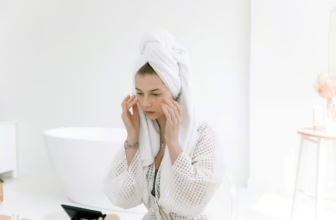Mental health conversations have finally moved out of the shadows. What used to be whispered about or brushed aside is now part of the open dialogue in families, workplaces, and schools. That doesn’t mean the conversation is easy. For many, the challenge isn’t just knowing that support exists but figuring out what changes actually move the needle in daily life. Big breakthroughs can be rare, yet the small, consistent shifts often end up being the most powerful.
The Power of Tiny Adjustments
When people picture working on their mental health, they often imagine something dramatic: a retreat in the mountains, cutting-edge therapy, or a major lifestyle overhaul. In reality, the changes that stick are usually less dramatic and more practical. Setting a boundary on when work emails get checked. Going outside for ten minutes of sun first thing in the morning. Making one phone call a week to someone who isn’t part of the daily grind. These things might sound ordinary, but ordinary is exactly what makes them effective. They fit into life without becoming another stressor.
This idea goes against the perfectionist streak that runs through so many of us. We want to believe that transformation requires a full reset. But what truly helps is stacking small shifts until they become habits. The body responds to consistency, not spectacle. It’s the same principle as physical fitness: you don’t need to run a marathon to build endurance; you just need to keep moving a little every day. The same goes for mental endurance. The smaller the step, the more likely it is to become part of daily life—and the more likely it is to stay.
Making Space for Maintenance
There’s a tendency to only focus on mental health when things feel like they’re unraveling. But waiting until that point is like waiting for a car engine to seize before checking the oil. Just as routine maintenance prevents breakdowns, regularly setting aside time to check in with your own mind keeps small struggles from turning into bigger ones. This can look like journaling, therapy sessions, or even a standing coffee date with a friend who knows how to listen without judgment.
It helps to think of these practices as part of your weekly rhythm rather than as emergency measures. That shift in mindset is what allows you to fine-tune your mental health before it’s strained. You wouldn’t only drink water after running a marathon—you drink it every day, knowing it keeps your body from hitting a wall. Mental health care works the same way.
The beauty is that maintenance doesn’t have to be complex. It’s not about reinventing your life. It’s about giving yourself consistent opportunities to notice how you’re doing and to make adjustments before problems deepen. By approaching it with that mindset, the whole idea of mental health becomes less intimidating and more like any other part of wellness.
Expanding Beyond the Basics
While routines and maintenance practices are valuable, some people need more intensive care at certain points. The good news is that options have broadened significantly. What used to mean a long stay in an institution has shifted to include modern treatment centers designed around comfort and respect. Today, people can access luxury mental health facilities in California, Kentucky or anywhere in between, and those programs often blend clinical expertise with settings that feel restorative rather than clinical.
This shift matters because the environment influences healing. When someone walks into a place that feels peaceful, safe, and even beautiful, the mind is more receptive to change. Whether it’s a retreat-like program in wine country or a facility nestled in rolling hills, the goal isn’t indulgence but creating an atmosphere where healing feels possible. That’s not accessible or necessary for everyone, but the fact that these options exist shows how far society has come in treating mental health with dignity rather than stigma.
What’s equally important is that the range of care now stretches from outpatient counseling to residential programs, giving people more control over how they engage with treatment. Flexibility means individuals can find care that matches their needs without sacrificing comfort or respect. For those who once hesitated to seek help out of fear of sterile or harsh environments, this evolution is a welcome change.
The Role of Relationships
Even the best professional care can’t replace the everyday role of relationships. Having one person who listens without trying to fix things, one friend who knows when silence is better than advice, or one colleague who respects boundaries can make a world of difference. Social connection is the scaffolding that holds us up between therapy sessions or during stressful times.
Modern life has made it easy to confuse scrolling through feeds with connecting. Digital interactions can fill gaps, but they rarely provide the depth that in-person or voice-to-voice conversations do. There’s something grounding about sharing a meal, walking with someone, or laughing in real time. These moments don’t just soothe the mind; they remind us that we belong somewhere, which is a cornerstone of mental wellness.
When relationships are positive, they buffer stress. When they’re strained, they can heighten it. That’s why choosing carefully who gets your energy is part of mental health work too. Surrounding yourself with people who respect your limits and encourage your growth can make the difference between feeling drained and feeling supported.
Redefining What Help Looks Like
For years, getting help carried a heavy weight of stigma. It implied that someone wasn’t strong enough, when in fact reaching out requires immense strength. That perception is changing, and the definition of help itself is broadening. Help doesn’t always mean therapy or medication, though those are important options. It can also mean taking a day off without guilt, saying no when something doesn’t serve you, or recognizing when rest is more productive than powering through.
The shift in language around mental health has made it easier for people to express what they need without shame. It’s not about weakness but about aligning your life with what sustains you. Just as you’d call a plumber instead of trying to fix a burst pipe alone, reaching out for support when you need it is simply smart. Nobody’s meant to carry everything alone.
This reframing helps reduce the hesitation many people feel. The truth is, the earlier someone seeks help, the easier it is to make changes. By normalizing small, everyday ways of asking for and receiving support, we create a culture where care is just another part of life, not something to hide.
Staying Open to Change
Mental health is never a finished project. Needs shift as life shifts, and that means staying flexible. What worked one year might not work the next. Instead of seeing that as a failure, it helps to view it as natural evolution. If meditation stopped being helpful, maybe journaling will be. If a certain therapist isn’t the right fit anymore, another might bring a new perspective.
The key is to stay curious about what helps rather than being rigid about sticking to one formula. Growth isn’t linear, and expecting it to be only adds pressure. Progress sometimes looks like learning to pause, to pivot, or to try something different. That adaptability is itself a form of strength.
It’s tempting to want clear answers and permanent fixes, but mental health is more about adjustment than resolution. Accepting that makes the process less daunting and more human. Just as life changes in ways we can’t predict, our strategies for balance have to keep evolving too.
Closing Note
The conversation around mental health doesn’t need to be about chasing breakthroughs or waiting for collapse. It can be about the daily act of checking in, adjusting, and caring enough to protect your own well-being. Whether it’s through small rituals, supportive relationships, or professional care, the thread that ties it together is consistency. No one is expected to perfect this. The goal is to keep moving, keep adjusting, and keep choosing to care. In the end, that’s what makes life feel not just manageable, but worth living.
Follow me down the rabbit hole!
I'm Alice and I live with a dizzying assortment of invisible disabilities, including ADHD and fibromyalgia. I write to raise awareness and end the stigma surrounding mental and chronic illnesses of all kinds.








